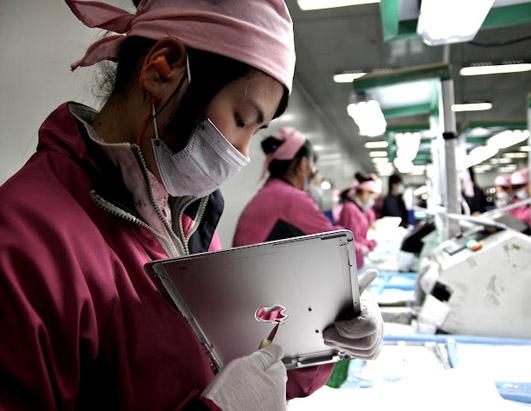
ABC’s 25 minute documentary ‘A Trip to the iFactory‘ just aired on Nightline, where correspondent Bill Weir traveled to Foxconn for the world’s first full view of the operation inside. For those unfamiliar, Foxconn is the factory where Apple’s and other top brands’, products are manufactured.
In recent years, the Shenzhen, China based Foxconn has had a negative vibe in the public’s view. People have viewed Foxconn as exploiting workers, hiring people underage, and causing workers to become so depressed they commit suicide.
ABC was granted the first inside look at the factory, showing working and living conditions workers are under to produce our favorite Apple products. But did the way ABC portrayed Foxconn match public perception, or did it bring a whole different view (spoiler alert)?
As the program begun Bill Weir was quick to disclose the ties ABC has with Apple. ABC’s parent company is Disney, and not only is their CEO Bob Iger on Apple’s board, but Steve Job’s trust is the single largest shareholder. Weir tried to instill there wouldn’t be any biasedness.
The documentary begun with Bill Weir entering the Foxconn gates, guided by Foxconn execs. I instantly got the feeling that this place was run like a large city, because it really is. With over 1 million workers there has to be restaurants, stores, and more, for workers to enjoy themselves after long shifts.
Weir was told he was able to talk to any employee, at any time. Many employees told Weir about life at Foxconn. One employee complained about the trees blocking the dorms that didn’t let enough sunlight in, while even more complained about low wages. When Foxconn’s CEO was asked about low wages, he said he’d love to raise them. Which recently, Foxconn already did.
The documentary gave a real sense to how the production lines are at Foxconn. There’s nothing automated and workers are doing most of the work by hand. For example, it takes 141 production steps for one given Apple product (I didn’t catch which). Also, in a given day there can be 300,000 camera chips manufactured for the iPad. Foxconn literally churns out products.
To keep up with demand, Foxconn has to keep their production lines staffed at all times. ABC taped one Monday morning, as 3,000 Chinese citizens rushed through the gates at Foxconn in hopes of getting a job. A shocking 80% on average are hired.
When a prospective employee was asked about the suicides at Foxconn, she responded with, “it’s not really the company’s fault.”
While working at Foxconn, workers also stay in the dormitories. Suicide nets line every single building, after there were a string of 17 suicides in 2010. Apple’s then-COO Tim Cook brought together a group of social workers to help fix the problem. Interestingly, Foxconn’s suicide rate is lower than the rest of China.
Speaking to one worker about the overall atmosphere, he told Weir that it was equivalent to college life in the United States. Meals are expensive and everything is crowded.
When the production crew went out into the villages surrounding Foxconn, you could tell that people inside the plant really seemed to be better off. Living conditions ultimately felt more comfortable on the inside.
So how did ABC overall portray Foxconn?
I’ve never worked in a factory, and certainly hope I’m lucky enough not to have to. With that said, conditions in Foxconn didn’t seem as awful as I perceived them to be. Assembly lines seemed cleaned, and compared to the rest of manufacturing in China, these workers seemed to be better off. Foxconn is giving workers a lot better life than many other parts of China.
So you think ABC might be biased? Luckily, the Fair Labor Association will be publishing their report in a few weeks, perhaps giving a truly unbiased view on working conditions.
Overall, it made Apple look like they were working their hardest to give employees the best situation possible.
The ‘A Trip to the iFactory’ will continue to air at 11:35 PM in respective time zones. ABC will most likely post the video online tomorrow.
For those who have already seen it: did the documentary change your view on Foxconn?